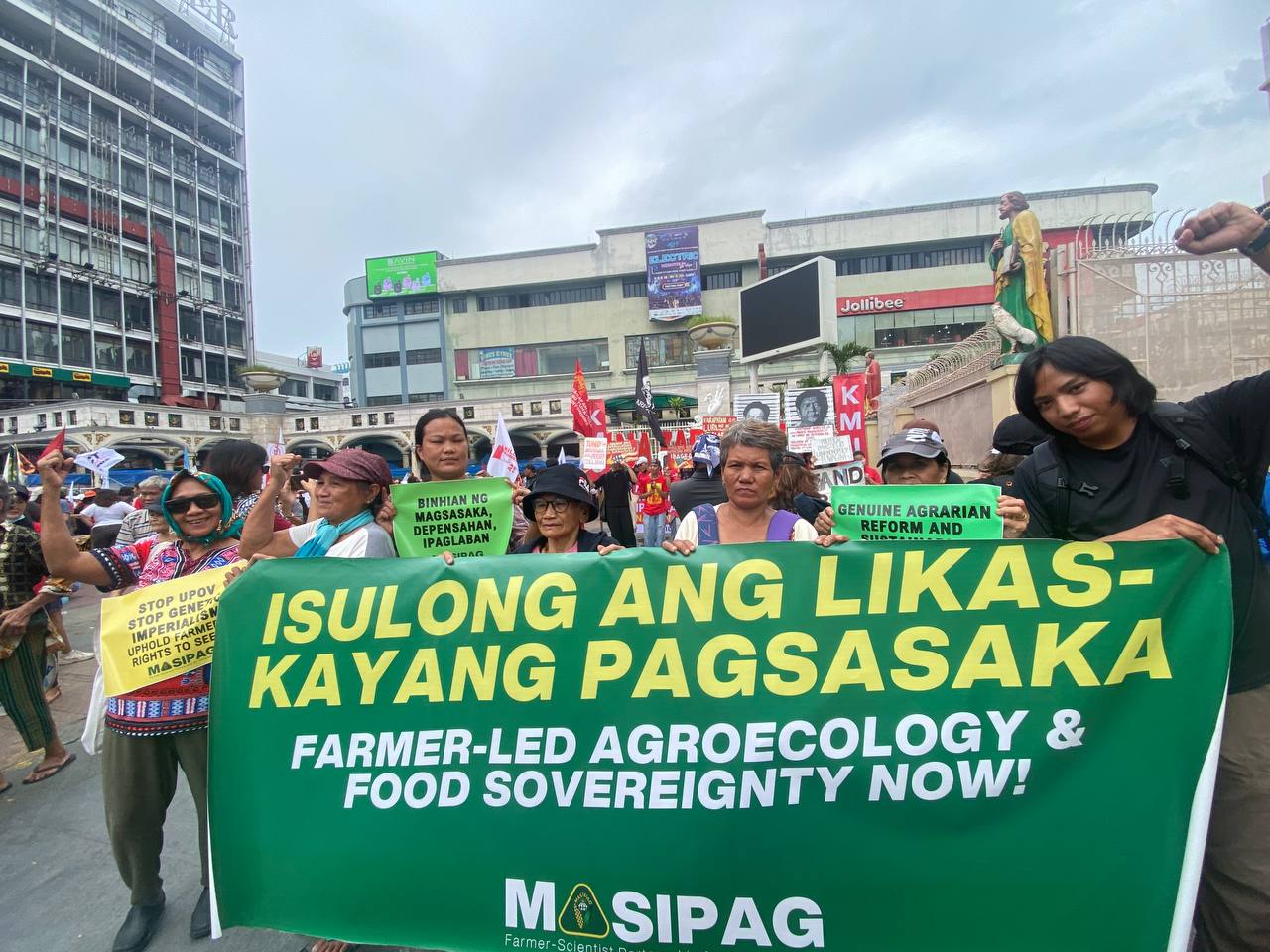Agroecology: a tool for the defense of human and land rights in the Philippines
Dec 9, 2024

Marilou firmly remembers the peaceful life they once had, enjoying the freedom to cultivate their land without interference. However, in 2019, that peace was abruptly disrupted by the onset of a quarrying operation. The operation did not just disturb their daily lives; it posed a direct threat to their rightful place on the land they had called home for generations. She knew she had to stand firm to protect their land.
“When the quarrying operation came, they threatened to drive us away from our land. It was heartbreaking because we were born here, our parents died here; we cannot afford to leave this place,” said Marilou
Marilou is one of many small farmers in Negros Occidental, a province in the Visayas region, who are at risk of losing their land. She and her fellow farmers are being organized by the Paghida-et sa Kauswagan Development Group (PDG), a local partner of Solidagro and MASIPAG. Their goal is to support the farmers in defending their rights to their land against land grabbing and corporate interests. Agroecology plays a crucial role in this effort, empowering farmers to continue working on their land while strengthening their organizations to defend their rights.
“We are organizing ourselves to fight for our land with the help of PDG. Masipag and Solidagro introduced us to agroecology, which not only helps us secure our food and manage our land and care for the environment but also unites our community in the fight for our rights,” said Marilou.
Agroecology has united local communities by promoting mutual assistance among various organizations and providing opportunities to share knowledge and experiences. Through practices like crop diversification, green manuring, organic composting, biological pest control, and intercropping, agroecology encourages community members to participate in decision-making regarding their farming methods. This increased involvement aims to enhance food security, reduce reliance on chemical inputs, and empower them to defend their rights more effectively.

Myrna, a farmer leader, emphasized the importance of collective action in their struggle to defend their land.
“When we began to fight against those who wanted to take our lands, we did it individually and without any sense of organization. This lack of unity allowed the land grabbers to harass and intimidate us. However, through the organizing efforts of PDG and Masipag, we have become aware of our ability to defend our rights and improve our lives through collective struggle.”
Unfortunately, the struggle to protect their lands has made many organized farmers targets of attacks, including arrests, abductions, military presence in their communities, and even extrajudicial killings. The Philippines consistently ranks among the countries with the highest number of human rights abuses against land and environmental defenders.
Organizations collaborating with rights defenders, such as PDG and Masipag, have faced intimidation and red tagging (labeling of individuals or groups as subversives or terrorists). The government has weaponized the law against individuals and organizations defending human and land rights, and those that criticize its actions. Police and military forces often file baseless charges against land, environmental, and human rights defenders, showing a blatant disregard for due process.
In the face of a repressive environment, Philippine social movements have steadfastly committed to empowering the people to defend their rights and hold the government accountable. In Negros, farmers like Marilou and Myrna have remained steadfast defending their rights despite the military's ongoing attempts to harass and intimidate them into giving up their struggle.
These farmers have embraced agroecology because it is closely linked to their struggles. More than just an agricultural method, agroecology promotes social justice by ensuring fair access to land and resources. It empowers local communities to decide how their food is produced and distributed, enabling them to defend their rights effectively.
With the invaluable support of Solidagro, Masipag, and PDG are actively working to cultivate a new generation of community leaders and organizers, to extend the reach of their agroecology program into various communities across Negros Occidental and throughout the Philippines. This initiative not only focuses on sustainable agricultural practices but also strongly emphasizes empowering women, recognizing their essential contributions to agroecology.

Through training and support, Masipag and PDG enhance the skills and capabilities of women, enabling them to assume leadership positions within their organizations, and actively participate in food production and community initiatives. This approach ensures that women are not just participants but vital drivers of change in their communities.
Like Marilou and Myrna, many women are boldly stepping into leadership roles within their organizations, challenging and dismantling the outdated belief that their place is solely at home raising children.
By empowering women through agroecology and advocating for land rights, PDG, Masipag, and Solidagro inspire the pursuit of gender equality. Their commitment fosters a more just and dignified life for all, ensuring that human rights are respected and the right to land is attained.






